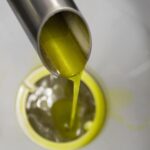
Base Oil SN 650: Production, Uses, Applications, Advantages, Disadvantages, Future Prospects, and Price Factors
How Base Oil SN 650 is Produced? Base Oil SN 650 is a highly sought-after lubricant base stock used in various industrial applications. Its high viscosity and excellent thermal stability make it an ideal choice for manufacturing high-performance lubricants. This comprehensive guide delves into the production process of Base Oil SN 650, its diverse uses and applications, advantages, disadvantages, future prospects, and price factors. Peak Universal Business stands out as a leading supplier of high-quality Base Oil SN 650, ensuring reliability and superior performance.
What is Base Oil SN 650?
Base Oil SN 650 is a high-viscosity, Group I base oil commonly used in manufacturing lubricants, greases, and process oils. It’s known for its good solvency, thermal stability, and high flash point.
Production Process of Base Oil SN 650
How Base Oil SN 650 is Produced? The production of Base Oil SN 650 involves several intricate steps to ensure high purity and optimal performance characteristics. Production Process of Base Oil SN 650, The process can be broken down into the following stages:
1. Crude Oil Distillation
The production starts with the distillation of crude oil. The crude oil is heated in a distillation tower, where it is separated into various fractions based on boiling points. The heavier fractions, which are rich in hydrocarbons, are collected for further processing to produce base oils.
2. Vacuum Distillation
The heavier fractions from the initial distillation undergo vacuum distillation. This process operates under reduced pressure, allowing the distillation of heavy hydrocarbons at lower temperatures. The outcome is the separation of different cuts of base oils, including the one used for SN 650.
3. Solvent Extraction
To remove undesirable components like aromatics and other impurities, solvent extraction is employed. A solvent such as furfural or phenol is used to extract these impurities, resulting in a more refined and higher quality base oil.
4. Hydrotreating
Hydrotreating is a critical refining process where the base oil is treated with hydrogen gas at high pressure and temperature. This process removes sulfur, nitrogen, and other impurities, enhancing the stability, color, and performance of the base oil.
5. Dewaxing
Dewaxing is essential to ensure the base oil remains fluid at lower temperatures. The oil is chilled to precipitate waxes, which are then removed through filtration. This step ensures that the base oil meets the required pour point specifications.
6. Final Blending
The refined base oil is then blended to achieve the desired viscosity and performance characteristics. Additives may be incorporated to enhance specific properties such as anti-wear, anti-oxidation, and corrosion inhibition.
7. Quality Control
Throughout the production process, rigorous quality control measures are implemented to ensure the base oil meets industry standards and customer specifications. Samples are tested for viscosity, purity, thermal stability, and other critical parameters.
Properties of SN 650 Base Oil
| Property | Typical Value |
|---|---|
| Kinematic Viscosity @ 100°C | 11–13 cSt |
| Viscosity Index (VI) | ~90 |
| Pour Point | -6 to -9 °C |
| Flash Point | > 240 °C |
| Sulfur Content | < 1.0% (after refining) |
These values may vary slightly by supplier or refining method
Uses and Applications of Base Oil SN 650
SN 650 is widely used as a blend stock or formulation base for:
-
🚗 Automotive engine oils
-
🛢️ Industrial lubricants
-
🧴 Greases and wax blends
-
⚙️ Hydraulic fluids
-
🏭 Transformer and gear oils
Its high viscosity makes it ideal for heavy-duty applications, especially where film strength and thermal stability are critical.
How Base Oil SN 650 is Produced, Uses and Applications? Base Oil SN 650 is versatile and widely used in various industries due to its excellent properties. Here are some primary uses and applications:
1. Automotive Lubricants
- Engine Oils: SN 650 is used as a base stock in formulating engine oils, providing excellent lubrication, reducing friction, and protecting engine components from wear.
- Gear Oils: Its high viscosity makes it suitable for gear oils, ensuring smooth operation and protection of gear systems under heavy loads.
2. Industrial Lubricants
- Hydraulic Fluids: Used in hydraulic systems to provide smooth and efficient operation, reducing wear and tear on hydraulic components.
- Compressor Oils: Enhances the efficiency and longevity of compressors by providing superior lubrication and thermal stability.
- Turbine Oils: Ensures reliable operation of turbines by offering excellent oxidation stability and anti-wear properties.
3. Metalworking Fluids
- Cutting Oils: Improves tool life and surface finish by reducing heat and friction during machining operations.
- Grinding Oils: Provides effective cooling and lubrication, enhancing precision and efficiency in grinding processes.
- Forming Oils: Ensures smooth metal forming processes with excellent lubrication properties.
4. Marine Lubricants
- Marine Engine Oils: Used in marine engines to provide reliable lubrication under severe conditions, protecting engine parts from corrosion and wear.
Advantages of Base Oil SN 650
Base Oil SN 650 offers several advantages that make it a preferred choice for lubricant formulations:
1. High Viscosity
The high viscosity of SN 650 provides excellent lubrication under extreme conditions, reducing friction and wear in heavy-duty applications.
2. Thermal Stability
SN 650 exhibits excellent thermal stability, maintaining its performance and structure under high-temperature conditions, thus prolonging the life of the lubricant and the machinery it protects.
3. Oxidation Resistance
Its resistance to oxidation reduces the formation of sludge and varnish, keeping engines and other mechanical systems clean and operating efficiently.
4. Cost-Effective
Compared to synthetic base oils, SN 650 is more cost-effective, providing a balance between performance and affordability.
Disadvantages of Base Oil SN 650
While Base Oil SN 650 offers numerous benefits, it also has some limitations:
1. Limited Low-Temperature Performance
SN 650 may not perform optimally at very low temperatures compared to synthetic base oils, potentially leading to issues in extremely cold environments.
2. Environmental Concerns
As a petroleum-derived product, the use of SN 650 raises environmental concerns related to sustainability and carbon footprint.
3. Not Ideal for High-Performance Applications
For applications requiring the highest levels of performance and stability, synthetic base oils might be preferred due to their superior properties.
Future Prospects of Base Oil SN 650
The future prospects of Base Oil SN 650 are influenced by technological advancements, market demand, and environmental considerations:
1. Technological Advancements
Ongoing research and development in refining processes could lead to improved quality and performance of SN 650, expanding its range of applications and enhancing its environmental profile.
2. Market Demand
The demand for SN 650 is expected to remain strong in industries such as automotive, industrial, and marine lubricants. Growth in emerging markets and increased industrial activities will drive demand.
3. Environmental Sustainability
There is a growing emphasis on sustainability and eco-friendly alternatives in the market. Future developments may focus on producing base oils with lower environmental impact, such as bio-based oils or improved recycling methods.
Environmental and Quality Considerations
While Group I oils like SN 650 are widely used, they have:
-
Higher aromatic content
-
Lower oxidation stability than Group II/III oils
-
Moderate biodegradability
However, refined SN 650 from reputable producers meets API and OEM standards, making it safe and reliable for most lubricant applications.
Price Factors of Base Oil SN 650
The price of Base Oil SN 650 is influenced by various factors:
1. Crude Oil Prices
As a petroleum-derived product, the price of crude oil significantly impacts the cost of SN 650. Fluctuations in crude oil prices can lead to changes in base oil prices.
2. Refining Costs
The costs associated with the refining process, including distillation, solvent extraction, hydrotreating, and dewaxing, affect the final price of the base oil.
3. Market Demand and Supply
Supply and demand dynamics in the market influence pricing. High demand or limited supply can drive up prices, while excess supply or lower demand can lead to price reductions.
4. Quality and Grade
The quality and grade of the base oil, including its viscosity, purity, and specific properties, can impact the price. Higher-grade oils typically command higher prices.
Why Choose Peak Universal Business as Your Base Oil SN 650 Supplier?
Peak Universal Business is a trusted supplier of high-quality Base Oil SN 650. Here’s why you should choose them for your base oil needs:
- Premium Quality
Peak Universal Business sources its Base Oil SN 650 from top refineries, ensuring high purity and consistent performance.
- Competitive Pricing
They offer competitive pricing, providing cost-effective solutions for your manufacturing and operational needs.
- Reliable Supply
With a robust supply chain, Peak Universal Business guarantees timely delivery and consistent availability of Base Oil SN 650.
- Technical Support
Their team of experts provides comprehensive technical support to help you achieve the best results in your applications.
📌 Frequently Asked Questions (FAQs) About Base Oil SN 650
❓ What is Base Oil SN 650?
Base Oil SN 650 is a high-viscosity Group I base oil used in lubricants, greases, and industrial oils. It is derived from the vacuum distillation of crude oil and further refined to remove impurities like sulfur, aromatics, and wax.
❓ How is Base Oil SN 650 produced?
SN 650 is produced through a multi-step refining process:
-
Vacuum distillation to isolate heavy lube fractions
-
Solvent extraction to remove aromatics
-
Dewaxing to improve low-temperature flow
-
Hydrofinishing (optional) to enhance stability and color
❓ What are the key properties of Base Oil SN 650?
Typical properties of SN 650 include:
-
Viscosity @ 100°C: 11–13 cSt
-
Viscosity Index: ~90
-
Flash Point: > 240°C
-
Pour Point: -6 to -9°C
These characteristics make it ideal for high-load, high-temperature lubricant applications.
❓ What is the difference between SN 500 and SN 650?
The main difference is viscosity:
-
SN 500 is lighter and flows better at low temperatures
-
SN 650 is heavier and offers better film strength and thermal stability
Both are Group I base oils but serve different lubricant formulation needs.
❓ Is Base Oil SN 650 suitable for automotive lubricants?
Yes. SN 650 is widely used in engine oils, gear oils, and industrial lubricants where a higher viscosity base oil is required.
❓ Is Base Oil SN 650 environmentally friendly?
SN 650 is a petroleum-derived oil with moderate biodegradability. While not as clean as Group II or III base oils, refined SN 650 can meet environmental and performance standards when properly handled.
❓ What packaging options are available for Base Oil SN 650?
Suppliers typically offer:
-
Bulk deliveries
-
IBC totes (1000L)
-
Steel drums (208L)
-
Flexitanks for export
Always ask for packaging that suits your storage and handling requirements.
✅ Conclusion: A Reliable Base for Lubricant Formulation
How Base Oil SN 650 is Produced? Base Oil SN 650 is a versatile and essential component in the formulation of high-performance lubricants used across various industries. Understanding its production process, uses, applications, advantages, disadvantages, future prospects, and price factors can help you make informed decisions about its use in your operations.
Peak Universal Business stands out as a leading supplier, offering premium quality Base Oil SN 650 with reliable supply and expert technical support. Enhance the quality and performance of your lubricants with their superior Base Oil SN 650.
For more information or to place an order, contact Peak Universal Business Team today and experience the benefits of high-quality Base Oil SN 650.
SN 650 is a cost-effective, reliable base oil with strong solvency and thermal characteristics. Understanding its production process helps users choose the right supplier and ensure consistency in their formulations.
If you’re sourcing SN 650 for industrial or commercial use, always ask for:
-
✅ COA (Certificate of Analysis)
-
✅ TDS (Technical Data Sheet)
-
✅ MSDS (Material Safety Data Sheet)
You can Read More about Base Oil Here:
How Base Oil SN 500 is produced?
Base Oil Properties, its uses & applications
📞Get High-Quality SN 650 from a Trusted Supplier
Looking for a reliable SN 650 base oil supplier?
At Peak Universal Business, we offer:
-
✔️ Premium Group I SN 650 base oil
-
✔️ Export-ready packaging (IBC, drum, bulk)
-
✔️ Global shipping with flexible MOQ
-
✔️ Fast delivery and COA on request
📩 Contact Us for Technical Details
Get in touch today to speak with our experts, request a technical data sheet, or receive a custom quote for Base Oil tailored to project. PUBLtd as your Base Oil Provider. If You have any other Query or Question you want to ask, Please don’t hesitate to Contact Us
- 0 comment





Leave a Reply